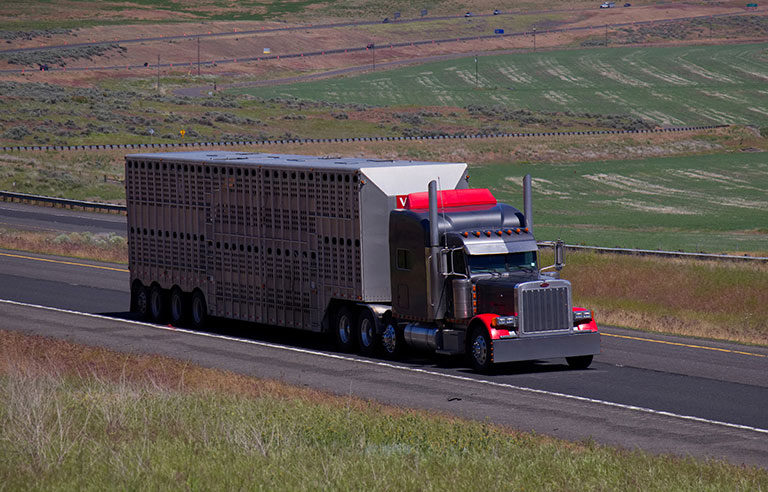New law grants livestock, insect haulers an added hours-of-service exemption

Washington — Stakeholders in the commercial trucking and livestock industries are applauding a provision to the Infrastructure Investment and Jobs Act that gives livestock and insect haulers an additional exemption from Federal Motor Carrier Safety Administration hours-of-service regulations.
Current regulations allow for exemptions in HOS requirements during harvesting and planting season in each state. Transporters of all agricultural commodities are exempted within a 150-air-mile radius from the source of that agricultural commodity. The legislation, signed into law Nov. 15 by President Joe Biden, amends the Motor Carrier Safety Improvement Act of 1999 to exempt livestock and insect haulers from HOS requirements in a 150-air-mile-radius from the load’s destination.
In a video posted on Facebook, TruckerNation.org spokesperson Andrea Marks calls the provision a “more permanent” and “more flexible” solution to HOS concerns. She emphasizes to truckers that “the 150 air miles on the back end is not available to all ag transporters; it is only available to livestock and insect transporters.”
She adds: “So, these two 150-air mile provisions that exempt you from hours of service, those provisions are written into two different laws, and they are, in some ways, available to two different groups of the trucking industry.”
The U.S. Cattlemen’s Association applauds the law.
“The livestock hauling provisions included within the bipartisan infrastructure package will allow for safer, more efficient transportation of live animals,” USCA Secretary Whitney Klasna said in a press release.
Post a comment to this article
Safety+Health welcomes comments that promote respectful dialogue. Please stay on topic. Comments that contain personal attacks, profanity or abusive language – or those aggressively promoting products or services – will be removed. We reserve the right to determine which comments violate our comment policy. (Anonymous comments are welcome; merely skip the “name” field in the comment box. An email address is required but will not be included with your comment.)

